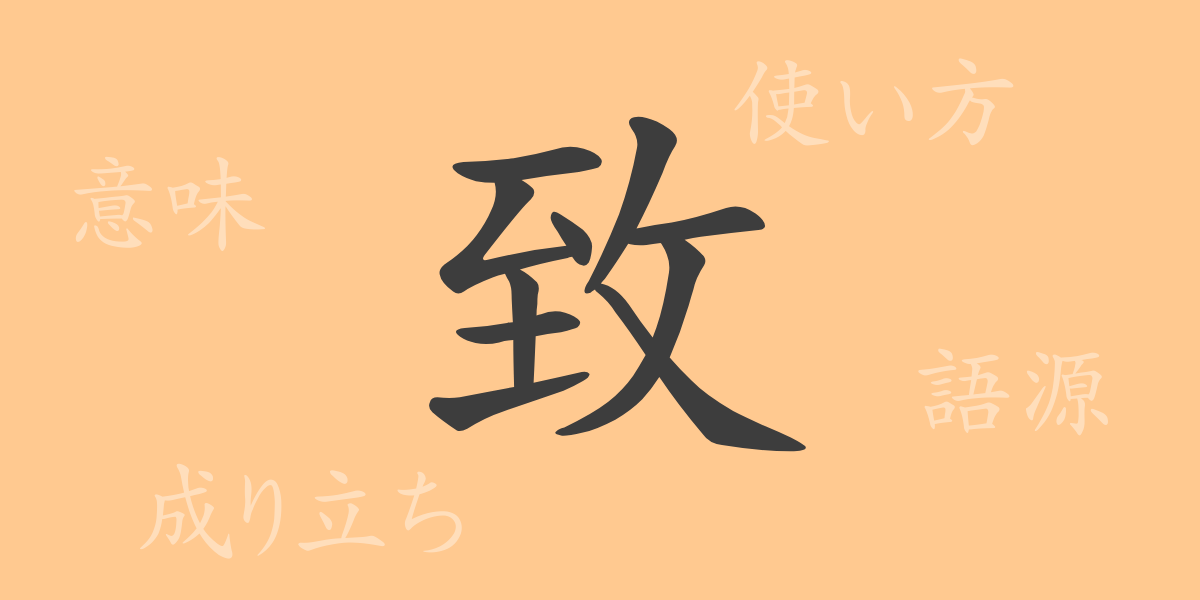Japanese contains numerous kanji characters, each with its unique history and meaning. This time, we focus on the commonly used kanji “致(ち) (chi).” We will explore its origins, meanings, usages, and the idioms and proverbs used in everyday life that feature this character. By understanding the profound meanings embedded in each kanji, we can rediscover the depth of the language.
Origin of “致(ち) (chi)”
The kanji “致(ち) (chi)” originates from ancient Chinese pictographs. Initially, it represented the act of shooting an arrow from a bow, symbolizing “to release.” Over time, it evolved to mean “to bring about” or “to cause.” This change likely stems from the idea of an arrow hitting its target, thus conveying the abstract concept of delivering something to a goal.
Meanings and Usages of “致(ち) (chi)”
“致(ち) (chi)” primarily means “to send,” “to deliver,” or “to cause.” Additionally, it can be used to express respect, as seen in phrases like “お送りする (おくりする) (okurisuru)” (to send) or “差し上げる (さしあげる) (sashiageru)” (to give). This kanji is often used in business documents and formal settings to convey politeness and respect.
Readings, Stroke Count, and Radical of “致(ち) (chi)”
The kanji “致(ち) (chi)” enriches Japanese expression through both its form and meaning:
- Readings: On’yomi (音読み) “チ(ち) (chi).” There are no common Kun’yomi (訓読み) readings.
- Stroke count: 10 strokes
- Radical: The radical is 臼(うすへん) (usuhen).
Idioms, Proverbs, and Expressions Using “致(ち) (chi)”
Idioms and expressions containing “致(ち) (chi)” play an important role in Japanese. For example:
- 「至急(しきゅう) (shikyuu)」 – “Urgently” or “as soon as possible.”
- 「一致団結(いっちだんけつ) (icchi danketsu)」 – “To unite with one heart.”
- 「心臓に悪い(しんぞうにわるい) (shinzou ni warui)」 – “To be very surprising,” literally “bad for the heart.”
These expressions are widely used in daily conversations, literature, and business contexts.
Summary of “致(ち) (chi)”
Understanding the multiple meanings embedded in a single kanji is crucial for appreciating the richness of the Japanese language. “致(ち) (chi)” plays a significant role in various contexts within Japanese. Through this article, we hope you have experienced the multifaceted charm of “致(ち) (chi)” and that you can enjoy the richer world of words it reveals.

























